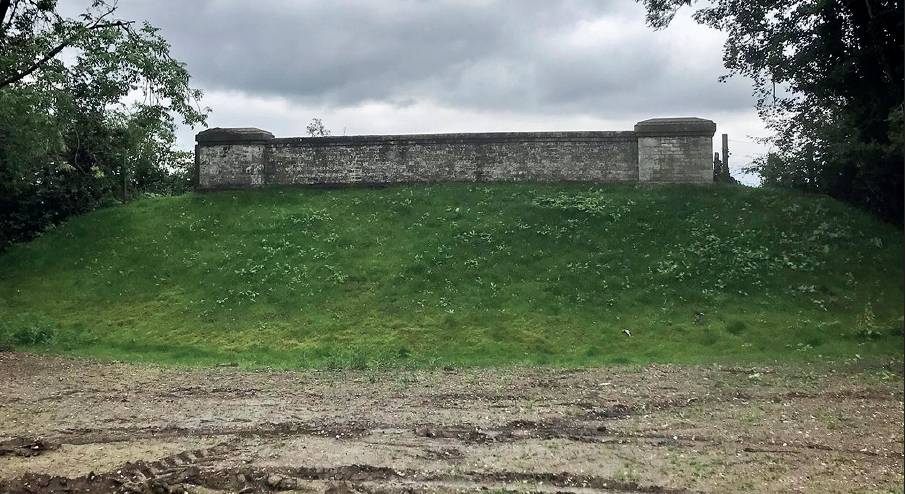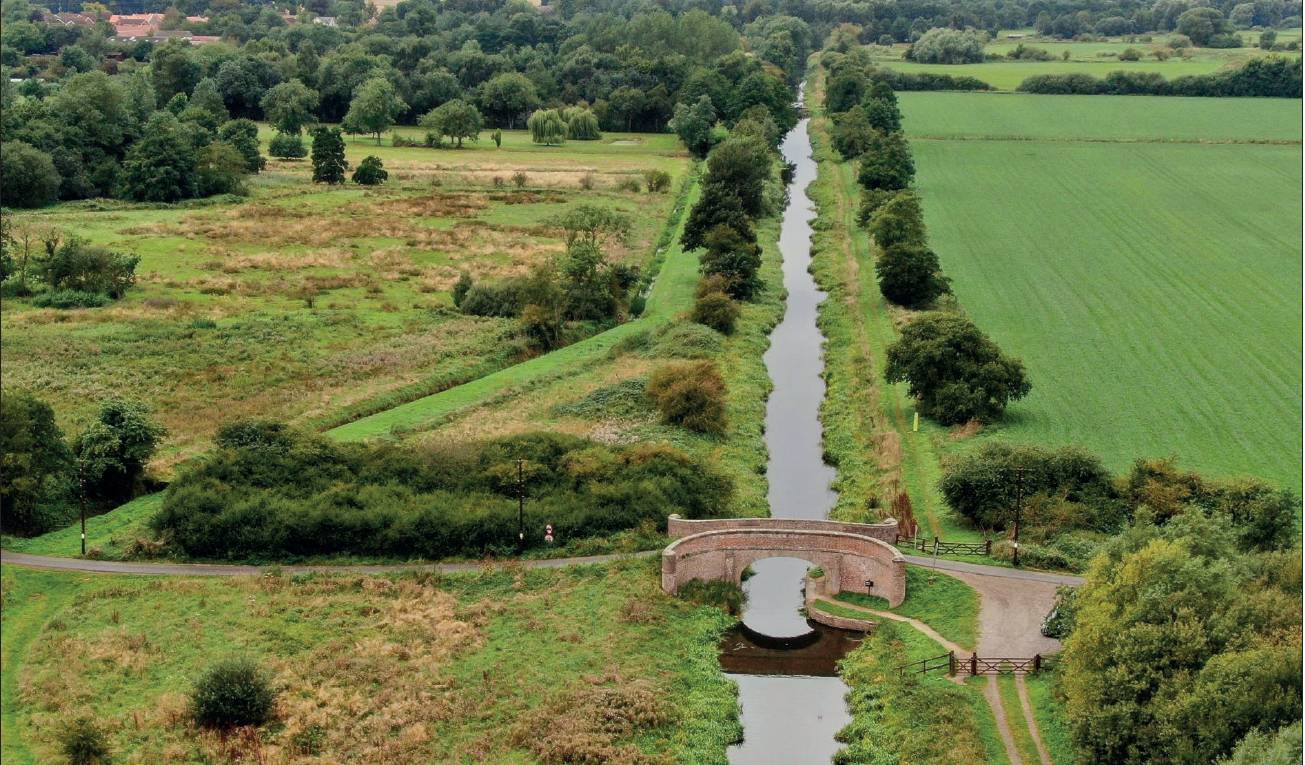Essential news & information from newcivilengineer.com
The Edit
BRIDGES
National Highways ordered to remove infill from Congham railway bridge by April
King’s Lynn & West Norfolk Borough Council has ordered National Highways to remove infill from under the Congham Road bridge by April after it failed to remove the material within 12 months of it being placed.
The council had requested a retrospective planning application for the infill work, but this was unanimously rejected by its planning committee.

National Highways said it would lodge an appeal with the Planning Inspectorate.
The council has issued an enforcement notice requiring the bridge and surrounding land to be “returned to its previous state within three months.” The notice comes into effect on 10 January. Any appeal must be submitted before this date.
National Highways claimed the infill was needed because the bridge was in “very poor condition.” But campaigners from HRE Group disagreed.
The HRE Group is an alliance of engineers, sustainable transport advocates and greenway developers. It claimed a 2019 inspection report said the structure was in a fair condition. HRE member Graeme Bickerdike said: “Although the bridge had a collection of defects, there was no emergency or any prospect of one. To convince the council of its case, the company [National Highways] misrepresented its own engineering evidence and sought to downplay the bridge’s historical significance. No traffic survey was conducted to help assess the risks associated with the structure, resulting in actions that were unjustified and disproportionate.”
ENERGY
Contracts for £1.8bn Scotland to England power cable link awarded
National Grid has awarded £1.8bn worth of contracts to build the Eastern Green Link 1 project, a new subsea electricity connection between England and Scotland.
Eastern Green Link 1 is a 2GW subsea transmission cable between Torness in East Lothian, and Hawthorn Pit in County Durham. Prysmian Group has won the £750M contract to install the UK’s first 525kV high voltage direct current (HVDC) electricity transmission cable as part of the project.
GE Vernova Grid Solutions and Mytilineos Energy & Metals have won the £1bn contract to construct the HVDC converter stations at each end of the link.
They will convert DC to AC, enabling the transmission of electricity into the onshore transmission network.
ROADS
Shortlist for latest A9 dualling contracts announced
Balfour Beatty, Graham and Sacyr UK have been shortlisted for Transport Scotland’s A9 Dualling: Tomatin to Moy project.
Procurement of the upgrade of 9.6km of the A9 to dual carriageway originally began in March 2021, but was scrapped after only one bid was received from the three shortlisted contractors.
New bids for the project – whose cost has increased from £115M in the first tender to £150M – were invited earlier this year. Aside from the upgrade to dual carriageway, the project includes four new junctions, the upgrade of an existing junction, construction of three new bridges, replacement of the Moy Rail Bridge and new active travel routes.
Balfour Beatty and Graham were on the 2021 shortlist for the job, alongside Wills Bros Civil Engineering. The construction contract is now expected to be awarded early in the summer, Transport Scotland said. The entire A9 dualling covers 128km and is worth £3bn.
KEY STAT
£150MCost of A9 upgrade between Tomatin and Moy in Scotland
FLOODS
Tree flood protection plan

Yorkshire Water is to pay 20 farmers in East Riding to plant “pop-up rainforests”. The aim is to combat flood risk, improve soil quality, reduce the amount of nutrients entering watercourses and provide drought protection.
Each farmer will grow a minimum of 10ha of trees a year, with the aim of sequestering atmospheric carbon, increasing organic soil matter and improving the land’s water retention capacity.
TUNNELS
£1.8bn Melbourne Rail Loop East tunneling package awarded
In Australia, Victoria’s state government has awarded a consortium of CPB Contractors, Ghella and Acciona the contract to build a AU$3.6bn (£1.8bn) tunnel for a new rail line in Melbourne.
The tunnel is part of the Suburban Rail Loop (SRL) East. It is one of four new suburban routes planned for the city. The SRL East tunnelling package runs for 16km between the eastern suburbs of Cheltenham and Glen Waverley
. In total, SRL East includes 26km of twin bore tunnel and two new underground station boxes. The four tunnel boring machines (TBMs) for this section will be powered by renewable electricity, and the aim is to reduce construction and materials emissions by 20%.
Construction is progressing in the SRL East corridor, with workers using excavators, cranes and piling rigs to build a 19m deep, 38m long and 29m wide trench for a TBM launch site.
KEY STAT
£1.8bnValue of Suburban Rail Loop East tunnel in Melbourne, Australia
RAIL
Peckham Rye station upgrade plans win planning consent
Network Rail has received formal planning consent for its proposals to upgrade Peckham Rye station in south London.
The Grade II listed Victorian station will be given a new station concourse, new lift and stair access to platforms, wider platforms, accessible toilets, additional gate lines and a new entrance.
Network Rail says this will “dramatically improve the passenger experience and safety particularly for people with luggage, wheelchairs and pushchairs. The station has become one of the busiest interchanges in London, registering 7M annual entries pre-pandemic. The upgrades will increase the station’s passenger handling capacity and allow more trains to stop there.
Network Rail will now submit an outline business case and a funding request for detailed design to the Department for Transport (DfT).
AIRPORTS
£60M Bristol Airport transport hub contract awarded
Griffiths Farrans JV has been awarded a contract to build a public transport hub at Bristol Airport. The £60M scheme includes a transport interchange and a multi-storey car park. These are intended to make the airport more accessible to its users.
Work to construct a new access ramp to existing car parks has begun after enabling works to divert services started in May. The project will also encompass social value initiatives and will adhere to sustainability principles, recycling thousands of tonnes of asphalt and other excavated material.
The scheme is part of Bristol Airport’s plan to increase its capacity from 10M to 12M passengers per year. It comprises an enlarged public transport interchange hub, an internal road system and an additional 2,000-space multi-storey car park. Over 100,000t of excavated material will be processed for use in the project.
- Sign up for New Civil Engineer’s Breaking, Daily and Weekly news alerts at newcivilengineer.com/newsletters